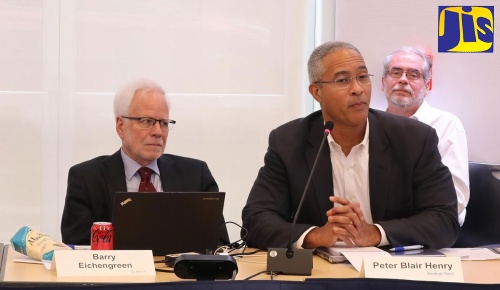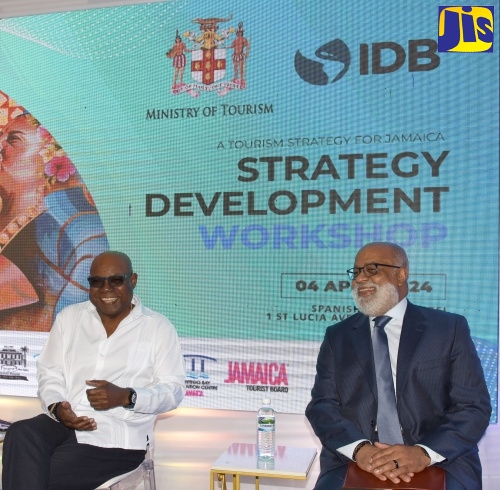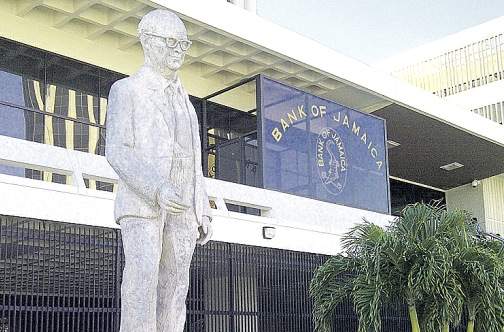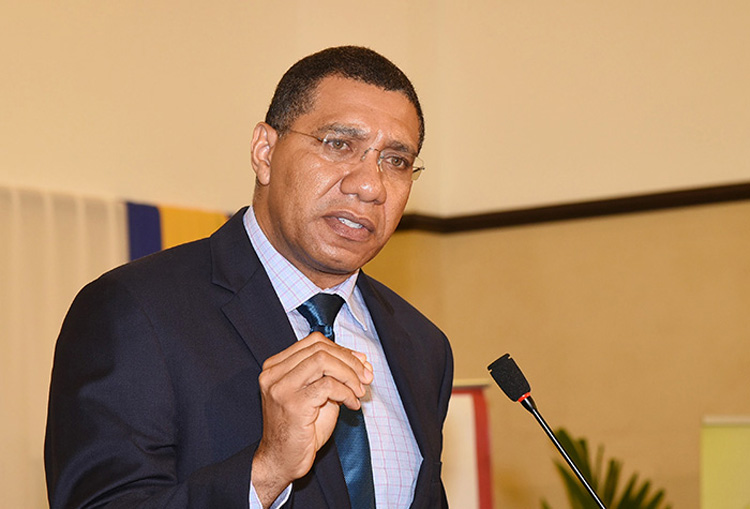As the Government moves to implement the next phase of the public-sector compensation review, Prime Minister, the Most Hon. Andrew Holness, has reiterated the call for increased productivity in the civil service.
“We are at the point where we have to get our public sector to be more efficient. But the public sector is not made up of block and steel. The public sector is made up of people; we have to get our people [to be] more efficient. Put it another way, we have to get our workers more efficient,” Mr. Holness said.
He was speaking during the ribbon-cutting ceremony for The Vineyards at Deanery apartment complex on Deanery Road in Vineyard Town, Kingston, on Wednesday (March 27).
The Prime Minister noted that productivity is a complex issue, partly driven by motivation fuelled by compensation.
“But a part of productivity is management, and the culture of managing our resources for efficient delivery is not a culture that is deeply entrenched in our public service. The Government has put in place the compensation review programme, which, so far, the understanding of it is that it is about increasing pay levels. That is so, and I think we have largely accomplished that, except for anomalies that need to be worked through,” he stated.
“The next phase of the compensation review is the performance and accountability systems. If we are to maintain these layers of accountability which you, the public, have asked for, and increase efficiency, which you, the public, are also asking for, then the only way to get both is by performance management. We have to set goals and we have to keep to those goals. We have to set systems of rewarding people who use initiative and who deliver,” the Prime Minister added.
Mr. Holness argued that this is not a concept that is necessarily rooted in the public service.
“We don’t take risks and we are not rewarded for risk or performance. If this project gets built on time, I get the same pay as if it did not get built on time. So, my job, uncomfortable as it is and as unfavourable as it sounds, is that if Jamaica is going to move forward to achieve the vision that all of us want and all of us want to participate in it, then the next phase of this compensation review has to be executed. And it is for all of us here who work in the public sector – we have to recognise our important role in embracing performance management. So, we are going to move towards that, and we are going to ensure that Jamaica becomes the productive country that we know it can be,” he emphasised.
The Prime Minister further noted that the only way to protect against inflation is to increase output and increase productivity.
“So, it is in the interest of workers to increase productivity,” he underscored.
Meanwhile, Mr. Holness welcomed the new housing development, and congratulated the developers for getting the project done.
The Vineyards at Deanery comprises studio and two-bedroom apartments, with a sixth-floor penthouse, which are in both blocks.
It offers convenient commute to key destinations, including hospitals, educational institutions, sports facilities, and churches.
Other features include solid countertops, porcelain tiles, pool house, glass-walled elevator, water tank, water heater, landscaped grounds and lobby, Juliet balcony, and 24-hour security.

General Manager, Jamaica Mortgage Bank (JMB), Courtney Wynter,
For his part, General Manager, Jamaica Mortgage Bank (JMB), Courtney Wynter, said the entity has significantly contributed to the nation’s housing stock and the growth of the economy.
He noted that evidence of this is in the financing of approximately 60 per cent of Portmore and, more recently, funding of the Long Mountain housing development, the University of the West Indies dormitories, and countless other developments across the length and breadth of Jamaica, including The Vineyards at Deanery.
“In 2020, the world experienced the worst pandemic in 100 years. Most global businesses were severely impacted as governments of the day tried to implement measures to keep their populations safe. Jamaica was not immune to the economic fallout of the COVID-19 pandemic. However, unlike most developing and developed states, Jamaica had the foresight to balance the need for safety with the necessity for continued economic activities,” Mr. Wynter said.
“As a result, one of the sectors that held up our economy during this challenging period, was the construction sector. The Vineyards [at Deanery]… is clear evidence that the decision to keep the construction sector open during the pandemic was the correct decision,” he added.
Mr. Wynter noted that seven of the now eleven projects currently managed by the JMB started during the height of the pandemic.
He further stated that these apartments are the result of a very innovative public-private partnership.
“The Jamaica Mortgage Bank’s legacy over the past 50 years is also very evident, through the number of Jamaicans that have achieved homeownership through its business, resilience and innovation. As the Bank pivots for the next 50 years, to being a private listed company, it is our commitment to continue building on that legacy of a great Jamaican financial institution, providing safe and affordable housing and shelter for Jamaicans, while contributing to the wealth creation for the ordinary man,” Mr. Wynter said.


 Businessuite News24 International2 years ago
Businessuite News24 International2 years ago
 Feedback & What You Think2 years ago
Feedback & What You Think2 years ago
 Marketing & Advertising2 years ago
Marketing & Advertising2 years ago
 Businessuite Women1 year ago
Businessuite Women1 year ago
 Businessuite 50 Power and Influence1 year ago
Businessuite 50 Power and Influence1 year ago
 Businessuite Markets2 years ago
Businessuite Markets2 years ago
 Leadership Conversations1 year ago
Leadership Conversations1 year ago
 RANKING2 years ago
RANKING2 years ago









 Bank of Jamaica (BOJ) takes note of the recent Court Decision in the matter involving Alliance Investment Management Limited (AIML), which is not a licensee of the Bank, and public commentary related to the actions taken by the Bank in December 2021 to suspend the cambio and remittance operating licences issued to then AIML-affiliated company Alliance Financial Services Limited (AFSL) effective 3 December 2021. The Bank’s actions also included the revocation of the authorisation granted to AFSL to operate in the Bank of Jamaica Fintech Regulatory Sandbox as a payment service provider effective 3 December 2021.
Bank of Jamaica (BOJ) takes note of the recent Court Decision in the matter involving Alliance Investment Management Limited (AIML), which is not a licensee of the Bank, and public commentary related to the actions taken by the Bank in December 2021 to suspend the cambio and remittance operating licences issued to then AIML-affiliated company Alliance Financial Services Limited (AFSL) effective 3 December 2021. The Bank’s actions also included the revocation of the authorisation granted to AFSL to operate in the Bank of Jamaica Fintech Regulatory Sandbox as a payment service provider effective 3 December 2021.





